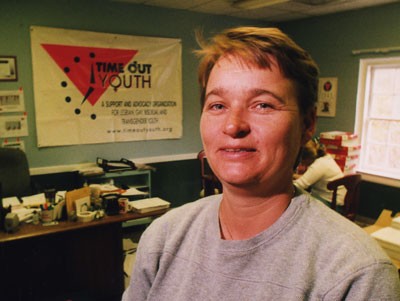Page 2 of 3
In addition to the pervasive conservative bias, FLEBHS lesson plans also include the following:
• A multiple choice question for seventh graders on how to effectively reduce the spread of STDs that makes no mention of condoms.
• An instruction to sixth graders that two of the consequences of getting pregnant outside marriage are "diminished self-esteem to both parents" and "feelings of alienation and guilt." In other words, it's not possible to feel OK about having kids unless you've tied the knot. Leave It To Beaver's June and Ward Cleaver would be proud -- and would probably approve of the Ann Landers essay on maturity sixth graders are required to read.
• A strong warning to teachers against talking about "certain topics" for fear of political repercussions: "Certain topics are beyond the limits of this class. Some topics are politically controversial and are best discussed in a small group of interested learners, with parents, or individually with the teacher or counselor, rather than in a classroom setting. Topics not appropriate for general class instruction include: abortion, specific information about the mechanics of sexual intercourse (i.e., various sexual positions) and various sexual lifestyles. Students should discuss these topics with their parents."
• A seventh grade homework assignment that could have been pulled from a fundamentalist Sunday school lesson in which students are asked to name the "types of sexual behaviors that will improve my reputation" or "will harm my reputation," "consequences of sexual behaviors that would bring shame to my family or me" and "consequences of sexual behaviors that would make me and my family members ashamed of myself."

- radok
- Mette Andersen, executive director of Time Out Youth.
• Instructions to teachers that, even when venturing into discussions of contraception, "care must be taken not to overemphasize contraception. ... When teaching abstinence and contraception in the same lesson, there is a danger of conveying to students a mixed message. We do not want them to think that we expect them to be sexually active." In addition, teachers are told that when telling students about the percentage of effectiveness of various forms of contraception, "remind them that the data reflects laboratory conditions and that human error and/or product failure could lower the effectiveness and heighten the rate of failure."
• A reminder to teachers, in case anyone had forgotten the main point, to emphasize the abstinence-based nature of the curriculum: "Sexual intercourse ... should take place only within a long-term, monogamous, committed relationship, such as marriage."
The students we talked to say their FLEBHS instructors seemed as though they were just going through the motions when teaching the curriculum.
"Most of what they taught didn't sound right, like it wasn't in touch with real life, you know what I'm saying? Plus, the teachers never did seem to want to be teaching about sex anyhow," says JaWayne, a Charlotte public high school junior.
Maya agrees: "They usually seemed bored. I'd get bored, too, if I was them, having to say the same thing all the time -- don't do it, don't do it, don't do it."
Elizabeth Boarman, the development director for Planned Parenthood in Charlotte, suggests the school system's abstinence-first focus is shortsighted. "We strongly believe in comprehensive sexuality education," Boarman says. "It's the best way within a school setting to promote healthy human development, relationships, sexual health and responsibility and knowledgeable decision making."
Boarman points out that comprehensive sex education also recommends abstinence as the ideal behavior for teens, but that it includes more thorough information about contraception, such as how to use it and where to get it, and provides information about sexual orientation.
An overwhelming majority of national health-related groups agrees with this tactic, saying that teaching an abstinence-based curriculum at the cost of downplaying information on safe sex and sexual orientation gives students an unbalanced, unsafe and unrealistic view of sex. The most active national groups pushing for comprehensive sex education include Advocates for Youth, SIECUS (the Sexuality Information and Education Council of the United States), Planned Parenthood and the American Medical Association (AMA).
The AMA has been particularly outspoken on the subject, stating in one of its position papers that "it is unethical to censor vital life-saving information from people who need it. American teens deserve medically accurate, realistic, and honest information about sex. Anything less in the era of HIV and AIDS is not only naive and misguided, but also irresponsible and dangerous."